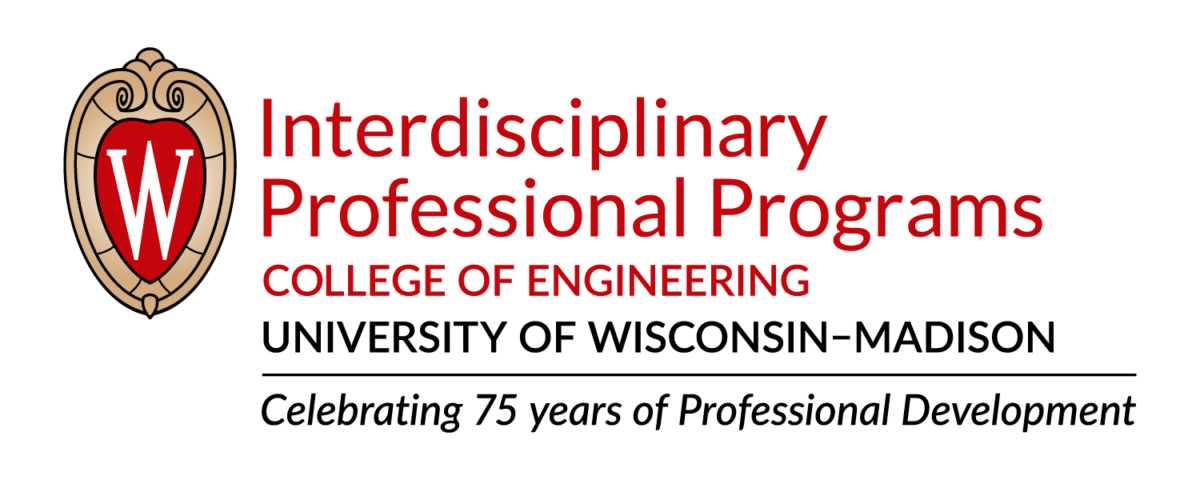
This year marks the 75th anniversary of our Professional Development program. Join us in looking back at our journey from the official beginning of Engineering Continuing Education in 1949, to the world-class lineup of offerings and instructors we support today.
To understand the full story, we need to step back to 1891 when the University of Wisconsin Regents adopted a resolution endorsing extension. This endorsement started the conversation of shared learning between university conservatories and industry professionals. In 1907, the University Extension Division was officially formed.
By 1912, the University Extension Division had 63 branches around the state. These early days of professional development were spearheaded by individuals like Ben Elliott, mechanical engineering instructor, who rode the trains to offer courses throughout Wisconsin. In one such instance, Ben visited a drug company in Fond du Lac to convince the company’s owners to consider ways of reducing the pollution they were creating with their coal-burning steam plant.
“We did anything that needed to be done. When the automobile came along, there was a great demand for internal combustion engine classes. So we conducted evening courses.” – Ben Elliott, Mechanical Engineering Instructor
Within the first 10 years, the University Extension Division had enrolled 24,555 students. Engineering courses reached 8,534 people during that time.
In 1949 – 1950, engineering institutes were officially inaugurated and the professional development offerings we know today began to take shape. Over the next 20 years, these programs continued to grow. In 1973 there were 212 courses serving 11,000 people, with media-delivered evening courses reaching an additional 4,000.

After several name changes and relocations, the “Department of Engineering Professional Development” found its home within the College of Engineering. With courses reaching beyond state lines into Las Vegas, Orlando, and other locations, our continuing education offerings were expanding rapidly.
In 2019 the department became an office within the College of Engineering and soon after was renamed “Interdisciplinary Professional Development” (InterPro). This change helped to expand the office’s focus to encompass engineering professional programs, advanced online graduate degrees, and certificates. It also opened the door for the addition of an industry consortia (UWEBC) and collaboration with other disciplines on the UW–Madison campus.
Pushing through a global pandemic, InterPro leaned into the capabilities and benefits of virtual learning and hybrid courses. Online learning, along with the newly expanded focus areas, allows InterPro to cater to the entire spectrum of learning needs, from basic awareness to profound expertise.

Today, professional development offerings continue to make an impact in our communities and workplaces. We’ve supported over 30,000 working professionals with our courses since 2015, with attendees originating from all 50 states. We’ve awarded over 18,000 PDHs and CEUs since 2018, and over 400 certificates within the last two years. Our work is driven by 16 Program Directors across seven diverse learning segments, and our programs are consistently ranked in the top 10 by US News and World Report. InterPro’s professional development offerings are constantly being updated to address market demand, with recent additions including programs focused on Artificial Intelligence, Carbon Management, and a suite of asynchronous courses designed to provide foundational knowledge in key subject areas.
As we look back at our 75 years of Professional Development, we’re proud to continue serving on-the-job professionals across many different industries. No matter what adversities we face, we strive to empower you with the tools you need to thrive in your career and drive impactful innovation. This is the same goal that has guided us since 1949, and thanks to our dedicated faculty, instructors, and students, we will carry on this mission for many more years to come.